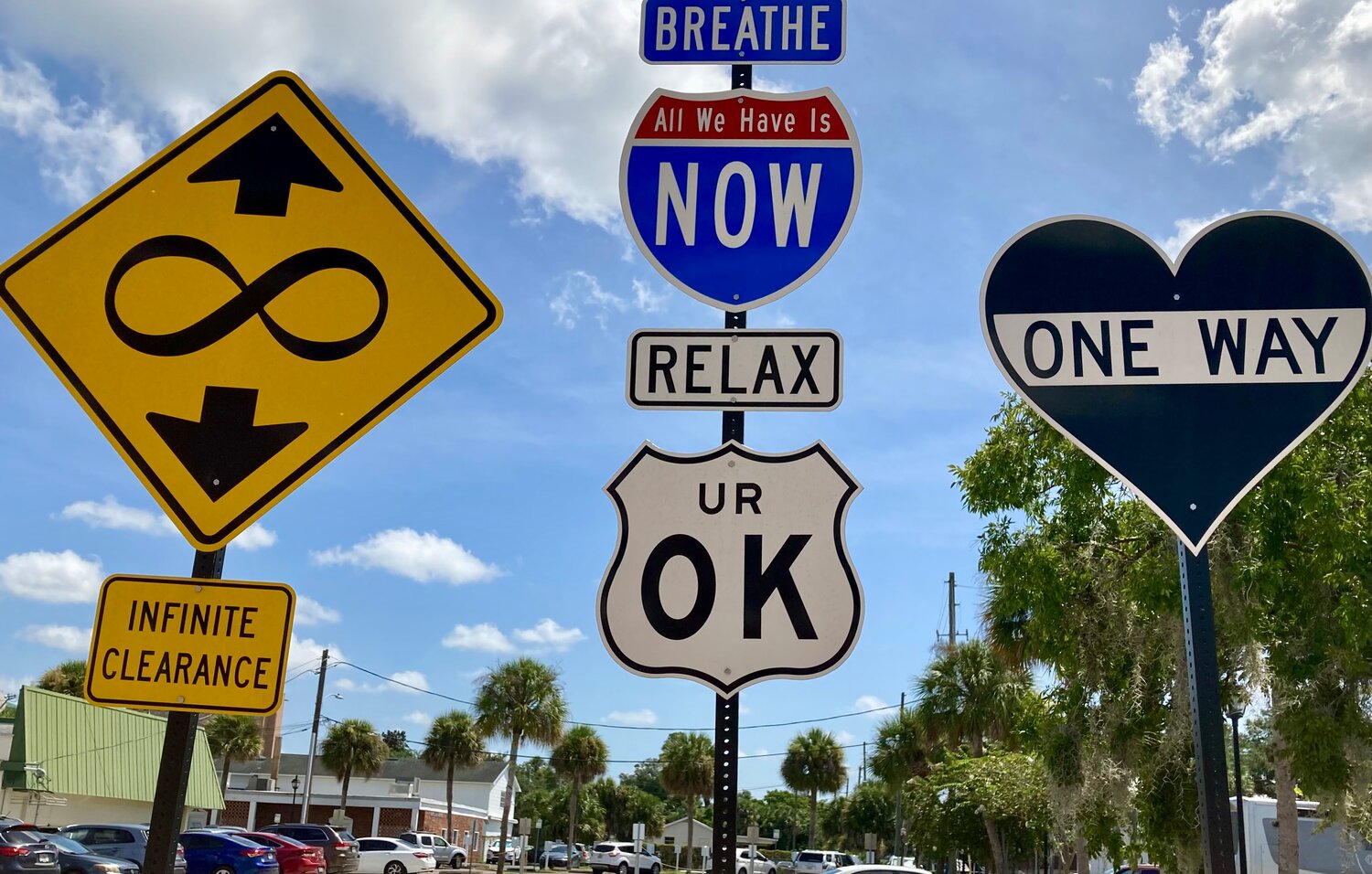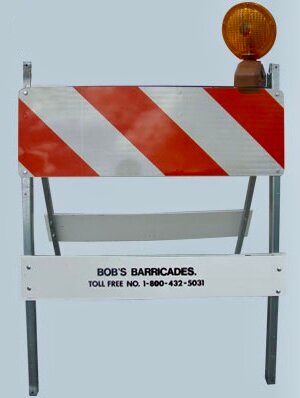Can We Learn Discretion From a Bob’s Barricade? Give it a Try!
If you have traveled around Florida, and especially if you have traveled State Road 200/A1A, you know what these are: Bob’s Barricades! These highway icons come in all shapes and sizes. They alert motorists to construction, detours, and numerous other travel inconveniences. We see them in rows for quite a distance before we see what activity or incident they are referring to.
We may think of Bob’s barricades as an inconvenience, but they are there for safety. They keep our cars in the correct lane and out of ditches. They function as good boundaries, indicating which areas are safe and which are not.

Here’s a photo I took in Deland, Florida of a group of signs. It’s funny and lets us know someone in Deland has a sense of humor. But they don’t give direction or warn us of danger. As annoying as Bob’s barricades may be, we need them. They act as protective boundaries.
Like highways under construction, people need boundaries too. Ours are not as obvious, but they help us navigate our complex world of relationships and situations.
We mostly think of boundaries in terms of our interpersonal relationships. This kind of boundary helps us know what our responsibility is in a relationship, where ours stops and where the other person’s boundary starts. This kind of boundary is not the same as a wall. It can be flexible and change depending on the situation and persons involved. A person with healthy boundaries can admit when they are wrong and ask for forgiveness. That person does not let others walk all over them. That person can be firm without being nasty. That person can allow for disagreement without taking offense.
We also have boundaries inside our own minds. These boundaries regulate what we think and feel, which then determines what we say and do. Our intrapsychic boundaries are formed early in life. As we grow and mature, we may need to learn new ways of regulating our thoughts and feelings if old patterns no longer serve us well. Thank goodness humans are capable of that!
In times of high anxiety in society at large, like the anxiety we face now, there is a lot of pressure on our boundaries. There is pressure toward “group-think” because perceived agreement feels comfortable. We stop trying to get along in the midst of differences. We grow suspicious of differences and we demonize those who think or feel differently.
A recent New York Times opinion piece by Michal Leibowitz (Aug. 26, 2024) examined an instance of boundaries in relationships regarding the very human tendency to gossip. We like to feel we are “in,” sharing personal information, sometimes at others’ expense. Ms. Leibowitz noted that there are those who are trying very hard to curb their tendency to gossip and to avoid relationships where gossip is the basis of communication.
This takes work on our internal boundaries as well as the boundaries we set for interaction with others. Stopping gossip either by withdrawing from it or from the people doing it can change how people feel toward us. Drawing a line on transmitting false information takes guts and determination.
Some people refrain from gossip due to religious conviction. Others have been influenced by the popular work, “The Four Agreements,” by don Miguel Ruiz and Janet Mills. This book is part of the Toltec Wisdom series of books they have written together. The first agreement is “be impeccable with your word.”
The meaning is explained in a companion volume, “The Four Agreements for a Better Life”:
“Be impeccable with your word really means never use the power of the word against yourself. When you’re impeccable with your word, you never betray yourself. You never use the word to gossip about yourself or to spread emotional poison by gossiping about other people.”

When we are driving and come across some of Bob’s Barricades, maybe we can be reminded of protection and safety. When we are tempted to gossip or to spread false information, maybe we can visualize one of these barricades and make wiser choices with our words.






